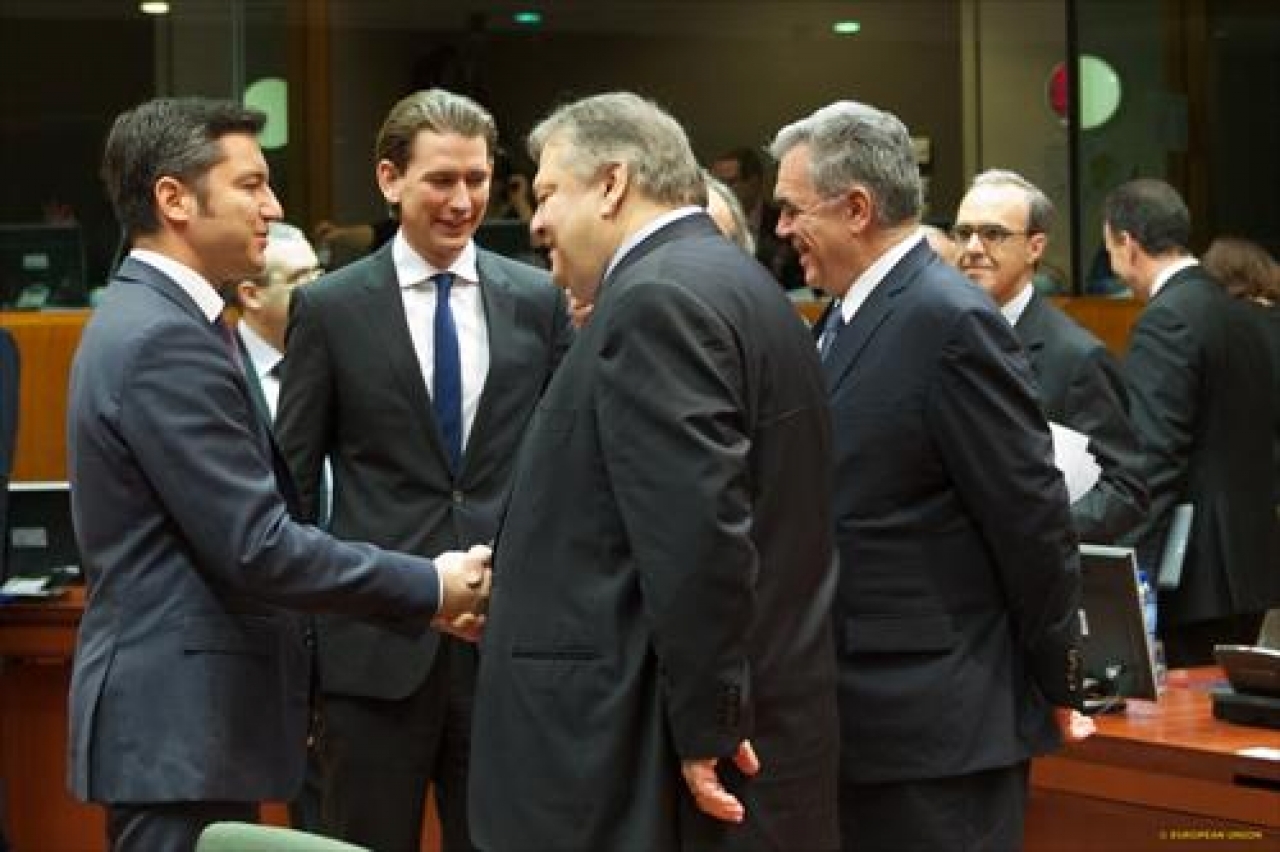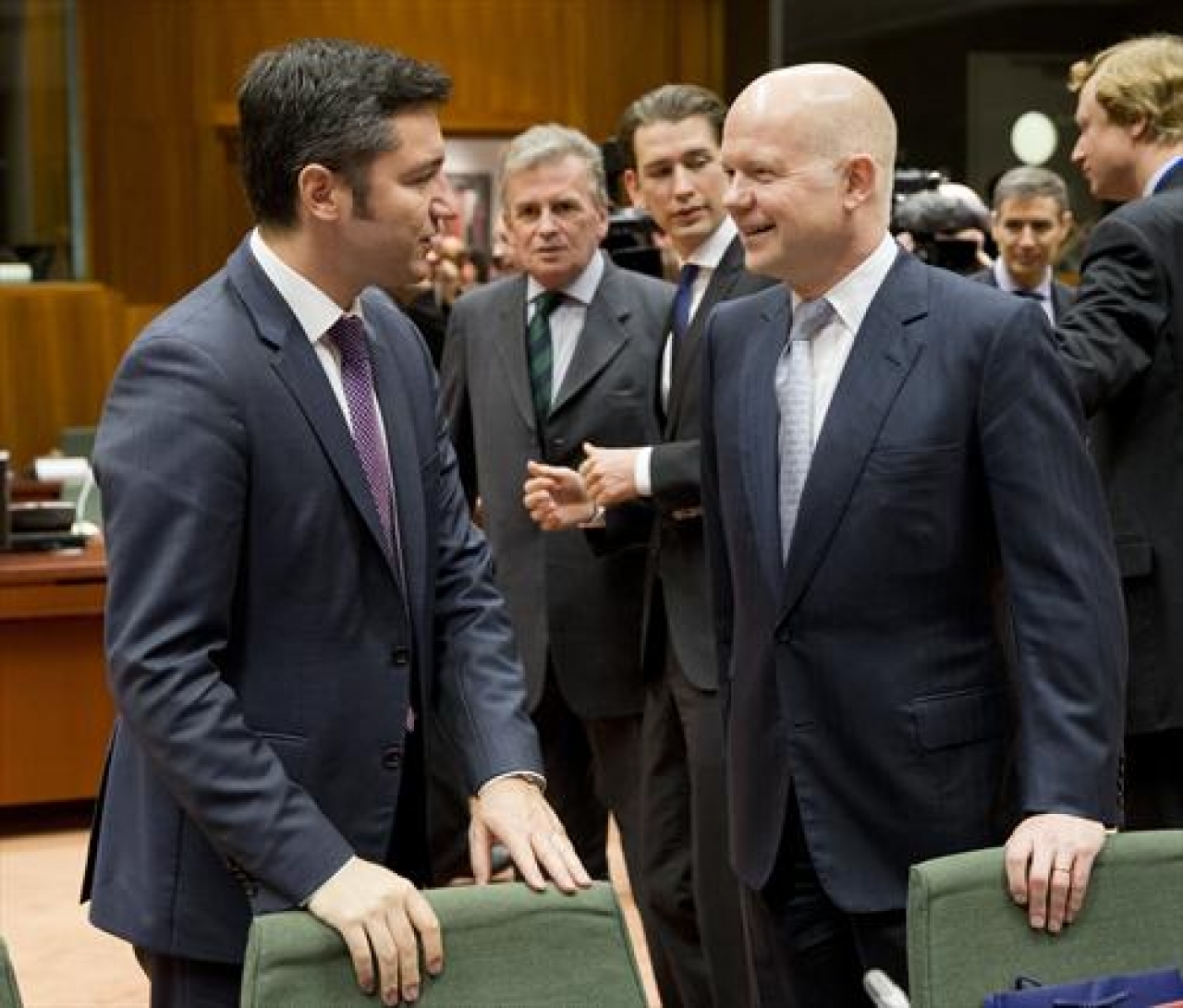Foreign Affairs Council discussed the Southern Neighborhood Policy, Afghanistan and other international issues
20 January 2014 News
Minister of Foreign Affairs Kristian Vigenin participated today in the meeting of the EU Foreign Affairs Council in Brussels. The main topics included the Southern neighborhood with a focus on the upcoming negotiations in Montreux on Syria (Geneva -2), the situation in Lebanon, Iraq and the developments in Egypt after the constitutional referendum, held in mid-January. Another topic was the Middle East peace process (MEPP) and the EU's possibility to contribute to the initiative of U.S. Secretary of State John Kerry. A detailed discussion was conducted on Afghanistan, the participants also exchanged views on the situation in the the Central African Republic (CAR) and South Sudan. FAC analyzed the developments in Ukraine and prepared the upcoming EU-Russia Summit on 28 January in Brussels.
The discussion on Syria focused on the Geneva 2 conference on January 22, reaffirming the view that the Syrian crisis could be resolved only through negotiations and political means. In this regard, the participation of the Syrian opposition in the conference is of a key importance. EU’s efforts should continue for the purpose of guaranteeing the participation of the opposition in the conference, said the Bulgarian foreign minister.
During the discussion, the participants emphasized on the provision of humanitarian access to Syria, which would help reducing the refugee flows to neighboring countries and to Europe.
In his media statement, Minister Vigenin referred to Bulgaria’s contribution to the EU's total pledges for the Syrian crisis of $753 million at the Kuwait Donor Conference.
On the MEPP, Bulgarian Minister said that the EU has supported the efforts of the U.S. Secretary of State John Kerry and is willing to provide unprecedented support for the successful conclusion of the negotiations and the process thereafter.
The constitutional referendum in Egypt on 14 and 15 January 2014, was assessed by the Council as an important first step towards a comprehensive political process and the conduct of the presidential and parliamentary elections. The EU will support this process by sending full election observation missions.
In his statement on Afghanistan, Minister Vigenin supported the conclusions of the Council and urged to clearly identify the areas in which the EU can contribute to the future development of the country in view of the Union's post-2014 Afghanistan strategy. The processes in Afghanistan were discussed in the context of the upcoming presidential elections in April 2014 and the significant reduction in the number of international forces at the end of this year. Major challenges remain ensuring security, establishing national institutions guaranteeing respect for human rights, fighting drug trafficking. The EU will continue its commitment to the development of police forces and strengthening the rule of law in Afghanistan through its EUPOL mission.
Minister Vigenin emphasized the contribution of Bulgaria, which currently has 428 military men as part of the NATO forces in Afghanistan, and is already planning its participation in future missions of the Alliance after 2014.
The Council adopted a crisis management concept for the Central African Republic and reached a political agreement to send military mission there, which requires the adoption of a resolution by the UN Security Council. Bulgaria has expressed political support for such a mission, but at this stage is unlikely to participate in it.
The Council adopted conclusions on Ukraine in view of the recent disturbing developments in the country after the adoption of the new legislation, which is restricting the rights of citizens to protest. FAC called the authorities to ensure that the legislation is brought in line with the international norms, and all countries - to establish dialogue and resolve the current political crisis through peaceful means. According to Minister Vigenin, the EU remains committed to the political and economic integration of Ukraine through the signing of Association Agreements and Deep and Comprehensive Free Trade Area, as soon as Ukraine is ready.
The EU-Russia Summit, which will take place at the end of the month in Brussels, was the topic discussed during the working lunch of the Ministers.

